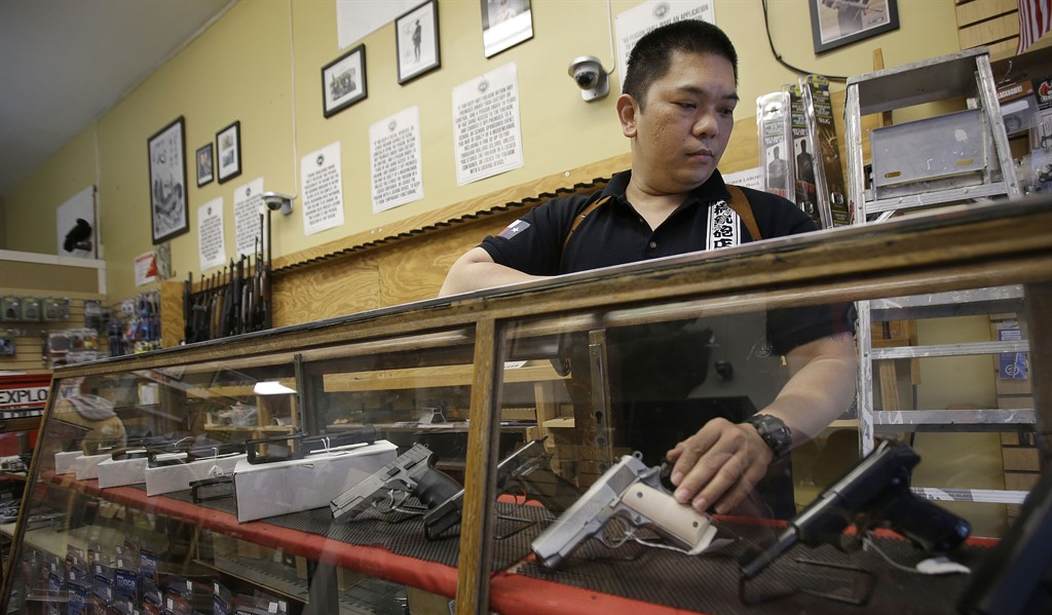One of the many laws being considered to stem the tide of mass shootings is universal background checks. Along with red flag laws that we already noted don’t prevent mass shootings, universal background checks are supposed to put an end to mass shootings, now and forever. Alright, maybe not, but they’re supposed to put a serious dent in the issue, right?
The problem is, while universal background checks can put a speedbump in your garden-variety criminal getting a gun–and not a particularly effective one, it should be noted–it doesn’t stop mass shooters.
Why? Because criminals don’t get their guns in lawful face-to-face transfers.
But would universal background checks, red flag laws and a ban of assault weapons reduce the bloodshed? This news organization looked at three years worth of recent active shooter incidents from 2016 through 2018 compiled by the FBI to see how often they involved background check loopholes, disturbing “red flag” signals from the shooter beforehand, and military-style assault weapons.
…
In nearly a third of the cases, military-style assault weapons banned in California and six other states were used, though the shooters often had other types of guns too. Most used ordinary pistols, shotguns and rifles.
The review found that guns were obtained in a variety of ways. Most of the shooters either legally bought weapons and passed background checks or used a gun that was stolen or belonged to a relative or friend.
Now, the report argues that red flag laws may well prevent mass shootings, though three different studies beg to differ. However, how shooters get their guns is what’s most important right now.
They’re not intentionally bypassing the background check process. They can either pass a background check or commit another crime, such as theft, to carry out their heinous crimes.
In fact, in the one example of a face-to-face transfer, it seems likely the shooter would’ve passed the background check anyway.
One of the mass shooters who killed five police officers at the end of a November 2016 protest in Dallas, Texas, bought an assault-type weapon from a private seller arranged through Facebook, picking it up in a Target store parking lot without a background check. But the gunman, an Army veteran of the Afghanistan war and reservist, also had two handguns, and it’s unclear a background check would have blocked him from buying a firearm.
It’s not unclear, to be honest. That shooter had no felony convictions, no convictions for domestic violence, and while he had some issues during his time in the Army, his discharge was officially classified as honorable. He would have passed a background check, and anyone who cares to look at it would know that.
Mass shooters are disturbed people, to be clear, but they often don’t have anything in their background that would prevent them from buying a gun. While there is evidence that many of them commit domestic violence prior to their shootings, they’re not being prosecuted for these acts and are thus free to buy firearms.
Universal background checks aren’t going to stop these guys. It’s not going to happen.
Instead, perhaps there should be an effort to encourage women who are the victims of domestic violence to report their abusers to the police. Maybe it should be framed as helping them rather than trying to punish them since so many of the victims seem reluctant to punish their abusers. I honestly don’t know what the answer may be.
What I do know, though, is that more background checks won’t stop mass shootings.








Join the conversation as a VIP Member